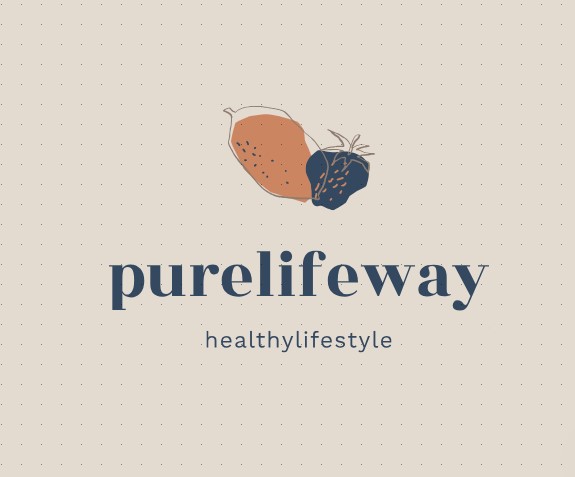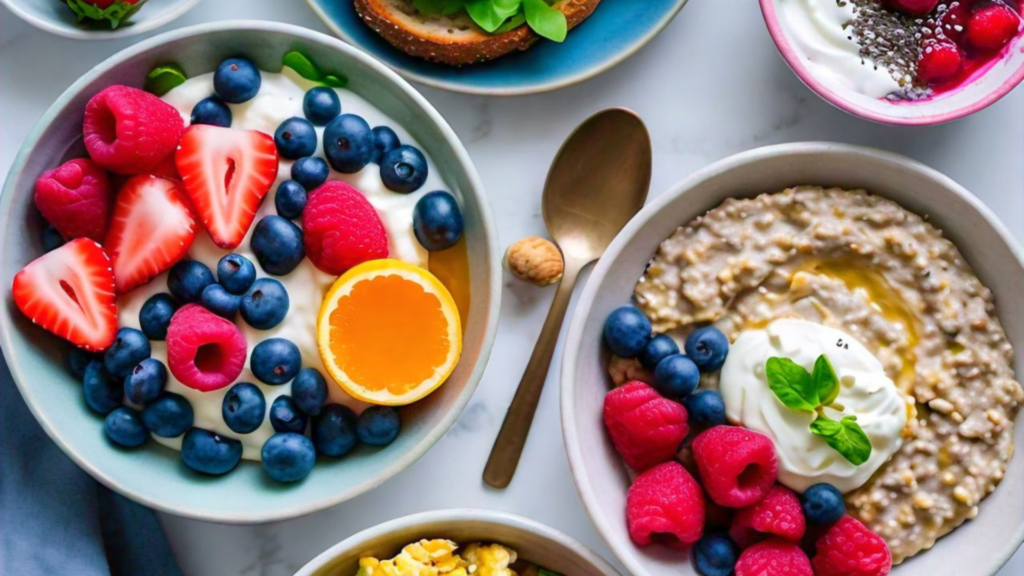Starting your day with a high-protein breakfast can set the tone for a productive and energetic day. Protein helps in muscle repair, supports a healthy immune system, and keeps you full longer, reducing the temptation to snack on unhealthy foods. Here, we present four delicious and natural ways to boost your morning meal with an extra 10 grams of protein.
1. Greek Yogurt: The Protein Powerhouse
Greek yogurt is a nutritional superstar when it comes to protein. A typical serving (about 6 ounces) contains around 15 grams of protein, making it an excellent choice for breakfast.
Why Choose Greek Yogurt?
- High Protein Content: Greek yogurt is strained to remove whey, which concentrates the protein content.
- Probiotics: It contains beneficial bacteria that support gut health.
- Versatility: Can be paired with fruits, nuts, and honey for added flavor and nutrition.
How to Incorporate Greek Yogurt
- Smoothies: Blend Greek yogurt with your favorite fruits and a splash of almond milk for a creamy, protein-packed smoothie.
- Parfait: Layer Greek yogurt with granola and fresh berries for a tasty parfait.
- Toppings: Use Greek yogurt as a base and add chia seeds, flaxseeds, or nuts to boost the protein content even more.
2. Eggs: The Breakfast Classic
Eggs are a classic breakfast staple and a versatile source of high-quality protein. One large egg contains about 6 grams of protein, so adding two eggs to your breakfast can easily give you over 10 grams of protein.
Nutritional Benefits of Eggs
- Complete Protein: Eggs contain all nine essential amino acids.
- Rich in Nutrients: They are an excellent source of vitamins B12, D, and choline.
- Versatile: Can be prepared in numerous ways, from boiled to scrambled.
Ways to Enjoy Eggs for Breakfast
- Scrambled Eggs: Mix with spinach and feta cheese for a protein-rich scramble.
- Omelette: Fill an omelette with vegetables, lean meats, and a sprinkle of cheese.
- Boiled Eggs: Pair boiled eggs with whole-grain toast and avocado for a balanced meal.
3. Quinoa: The Supergrain
Quinoa is often referred to as a supergrain due to its high protein content and numerous health benefits. One cup of cooked quinoa provides about 8 grams of protein, making it an excellent addition to your breakfast.
Health Benefits of Quinoa
- Complete Protein: Like eggs, quinoa contains all nine essential amino acids.
- High in Fiber: Helps in digestion and keeps you feeling full longer.
- Gluten-Free: Suitable for those with gluten intolerance.
Incorporating Quinoa into Your Breakfast
- Quinoa Porridge: Cook quinoa in almond milk and top with berries and nuts for a hearty porridge.
- Breakfast Bowl: Combine cooked quinoa with black beans, avocado, and a poached egg.
- Smoothies: Add cooked quinoa to your smoothie for an extra protein boost.
4. Nuts and Seeds: Tiny but Mighty
Nuts and seeds may be small, but they pack a powerful protein punch. A handful of almonds (about 23 nuts) provides 6 grams of protein, while two tablespoons of chia seeds offer about 5 grams.
Nutritional Power of Nuts and Seeds
- Healthy Fats: Nuts and seeds are rich in omega-3 fatty acids and other healthy fats.
- Vitamins and Minerals: They provide essential nutrients like vitamin E, magnesium, and zinc.
- Versatility: Can be easily added to various breakfast dishes.
How to Use Nuts and Seeds in Breakfast
- Overnight Oats: Mix oats with almond milk, chia seeds, and a scoop of almond butter. Let it sit overnight for a ready-to-eat breakfast.
- Smoothie Bowls: Top your smoothie bowl with a mix of nuts and seeds for added crunch and protein.
- Nut Butter: Spread almond or peanut butter on whole-grain toast and top with banana slices.
Conclusion
Adding 10 grams of protein to your breakfast can be both simple and delicious. Whether you prefer Greek yogurt, eggs, quinoa, or nuts and seeds, these natural options offer a variety of ways to power up your morning meal. Remember, a protein-rich breakfast not only fuels your body but also sets a positive tone for the rest of the day.



